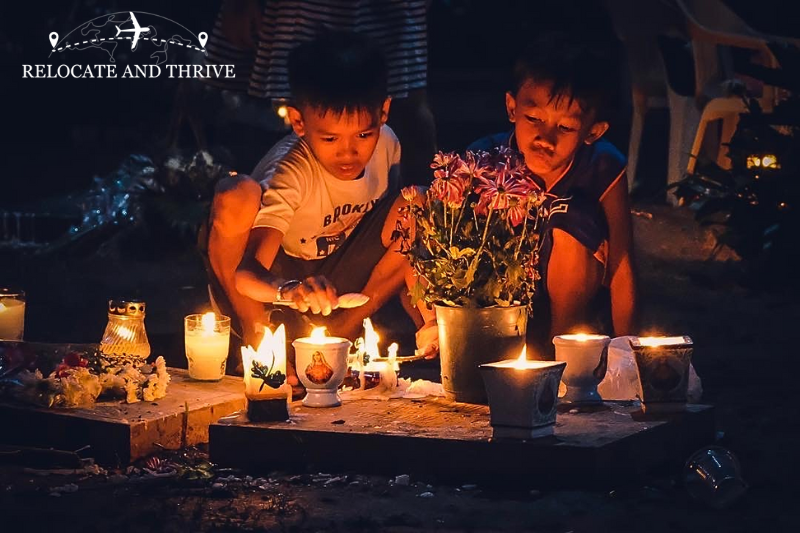All Souls’ Day in the Philippines (Undas): Honoring Memory, Family, and Tradition
If Christmas is the Philippines’ most festive season, then November begins with something more intimate yet equally powerful, All Saints’ Day (November 1) and All Souls’ Day (November 2), collectively known as Undas.
For Filipinos, this is not just a holiday; it’s a deeply cultural tradition of honoring loved ones who have passed away, reconnecting with family, and celebrating memory as much as life itself.
The Great Homecoming
As early as October 30, expect roads, airports, and bus terminals to overflow with travelers heading back to their hometowns. Similar to Christmas or Holy Week, Undas sparks one of the Philippines’ biggest annual migrations.
Travel tip: If you’re living in or visiting the Philippines, book tickets early, avoid peak days, and pack plenty of patience for traffic jams. Some families even leave a day early to beat the rush. Relocate and Thrive offers airport pick-up and transportation services to help you avoid the stress.
The Cemetery as a Living Space
During Undas, cemeteries take on an atmosphere you won’t find elsewhere. While solemnity is part of the day, you’ll also encounter a festival-like energy:
• Families arrive in groups, often carrying food, folding chairs, and even tents.
• Street vendors line entrances selling candles, flowers, snacks, and toys for kids.
• By nightfall, cemeteries glow with the soft light of thousands of candles, creating a warm, almost magical scene.
It’s not unusual to hear laughter, music, or stories shared by candlelight. The cemetery becomes a place of reunion, not just with those who have passed, but with living family and community.
Culture of Remembrance
For Filipinos, Undas is rooted in the belief that the dead remain part of the family. Remembering them through prayer, presence, and gathering ensures that their legacy continues.
Grandparents often take the opportunity to pass on stories, while children learn about ancestors they never met. It’s memory, tradition, and history coming alive around the tombstones.
Reflecting on life and death in this collective way brings a certain peace. It’s a reminder that family is not bound only by time, but by connection.
What Travelers Can Expect
• Closures: Some businesses, government offices, and even malls may close or run on shorter hours. Plan errands before November 1–2.
• Food: Many families bring packed meals, but you’ll also find stalls selling local snacks, think grilled corn, rice cakes (kakanin), and bottled drinks.
• Atmosphere: Expect crowds. For locals, it’s normal and comforting. For newcomers, it may feel overwhelming, but once you settle in, you’ll notice the warmth and hospitality of being invited into such an intimate tradition.
A Season of Reflection Before Celebration
Undas is a quiet prelude to the joyful Christmas season in the Philippines. It asks Filipinos to pause, remember, and give thanks for those who shaped today’s lives. Then, with hearts full of remembrance, the country turns toward celebration and togetherness.
For expats and travelers, experiencing Undas offers a window into the Filipino soul, family-centered, community-driven, and deeply respectful of the past.
In the Philippines, even remembrance is shared, with candles, food, and the comfort of family. It’s a gentle reminder that before celebration comes reflection, and both are part of the journey.


